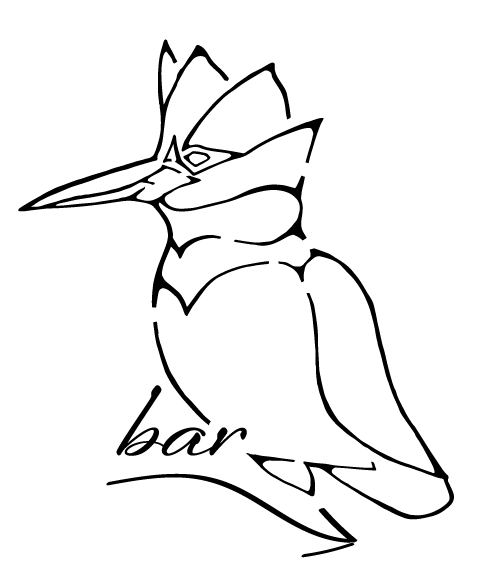From Seed to Ceremony
The flowers adorning our space at Kingfisher are grown by Bluebird Meadows.
Alice White has always been awed by the color and form of flowers and the aesthetic experience they create. “Flowers are super fleeting,” she says, “but they are a powerful expression.”
When she began farming, Alice wanted to focus solely on growing flowers, but felt vegetables were essential to a well-rounded farmers’ market display. Over 12 years on their 30-acre property in Hurdle Mills, North Carolina, Alice and Stuart White have built a market for their flowers and increased flower production to half of what they grow.
Floral design for weddings and special events has grown quickly as a part of Bluebird Meadow’s business in recent years. Alice and Stuart nurture their designs from seed to ceremony, growing all of the natural elements they work with and incorporating native plants.
“Event work holds a special place in my heart,” Alice says. “Having been married and experienced our wedding, it’s really special to create so much beauty for a client.”
For a wedding at the edge of the woods in Chapel Hill, they fashioned a whimsical jewel-toned flower wall of amethyst gladiolas, ruby red gomphrena and soft pink dahlias, dripping down on strings from the trees above. For another ceremony, against the backdrop of a restored brick wall, a modern gold arbor burst with colorful spires of bright blue delphinium, red quince, and orange Icelandic poppies, amidst verdant green foliage.
While growing flowers shares many similarities with growing vegetables, flowers can be unforgiving; they require a special attunement to the plant and timing is critical. Alice and Stuart contend with the dual pressure of growing their materials and actualizing their client’s vision. From years of experience, they know the color palettes and styles that are possible in each season. They avoid promising clients a specific type of flower, because weather and pests could destroy a crop. It is important that the flowers can sell well at the farmers’ market if needed, which is one of the reasons they decline all-white flower weddings; market customers gravitate to colorful bouquets.
Event work is high pressure and requires a lot of energy. “It’s always on my mind,” Alice says. “There’s always something that’s going to live or die.” When they think about the future, Alice and Stuart discuss whether it is sustainable to maintain the demanding event business, while farming, selling at the Durham Farmers’ Market, supplying restaurants, and raising their two children.
The finances of the business can also be volatile from year to year, subject to forces beyond their control like climate change and unpredictable weather events. “Farming is always a gamble,” Stuart says. “You never know what circumstances you’re going to face.” When they make a profit, Alice and Stuart reinvest in the farm to improve efficiency.
Alongside the difficulties of farming, Alice and Stuart feel love and satisfaction for their work. They delight in the moments that are singular to their farming lifestyle: watching their kids make bouquets from leftover flowers and crunch on carrots in the field like rabbits. After many years of growing, Alice still gets excited to plant new varieties of flowers. Though they are intense, events allow her to be creative and they provide a uniquely celebratory crescendo to her work. There is a moment at each event when Alice pauses to appreciate the beauty of a breathtaking floral design; the feeling is euphoric.


